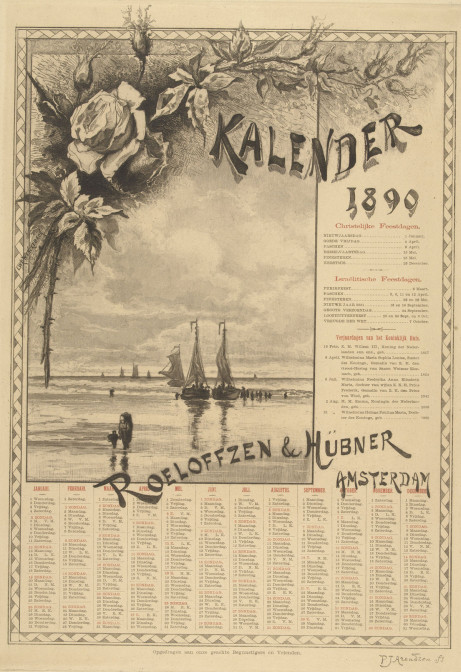The term Nieuwjaar means ‘new year.’ If you want to wish people in the Netherlands ‘Happy new year,’ you say ‘Gelukkig Nieuwjaar!’
The new year did not always start on January 1st. During the French occupation (1795-1815), the year started on 22 September. During the Middle Ages, some people used the Christmas style while others used the Eastern style calendar, named after the day that was considered the first day of the year. The Eastern calendar is particularly cumbersome since the timing of Eastern changes each year with the moon cycle so the time between two celebrations of Eastern can be significantly more or less than 365 days, leading to duplicate or missing dates.

Calender. Image credit: Rijksmuseum


You wrote that, “During French Occupation (1795-1815), the year started on 22 September”. Is that true for all Provinces during that time? I’m researching my ancestors and I’m right in the middle of this time period. However, they lived in Noord-Brabant (Asten) and since that Province had high Catholic population (which my ancestors were-and still are-very Catholic) I thought that Noord-Brabant changed to the Gregorian Calendar during the Middle Ages (1500’s). That would put the New Year on Jan. 1st.
Would the “Christmas style calendar” be another term for Gregorian calendar? And would “Eastern style calendar” be the Julian calendar?
I wasn’t sure if Napoleon required every Province to go to a different calendar during those years of 1795-1815.
Thanks for your help with this! Your website and blog have been a huge help to me! It’s almost scary how many times I’ve read your blog and it’s answered a question I had while doing my research during that exact time!
You are confusing two things. One thing is the calendar they use, and the other is the start of the year. You could have a Julian style calendar where the year changed on December 25 or January 1st.
The French Republican calendar was in use by the French authorities. They started counting the years again from 1 (1789), see French Republican Calendar on Wikipedia for more information. The French authorities used this calendar throughout the Netherlands during the French occupation, but several local record keepers kept to the Gregorian calendar instead.
It is great to read how my articles resonate with you. I try to write about the topics that I tend to get the most questions about, so that’s my ‘crystal ball.’